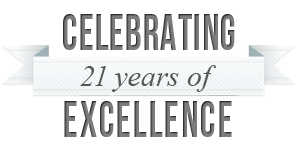When young women beginning their careers ask me how to become a leader, they are usually asking how to move up the corporate ladder. Leadership and a management position, however, are not the same. Leadership is a state of mind and skill; being a manager is a job title.
Developing leadership skills and adopting a leadership style is a career-long endeavor that must begin early. Three leadership skills I focus on are communication, confidence, and innovation.
Effective communication is the hallmark of effective leaders I know, and one of the most difficult skills to develop. They seem to communicate effortlessly, as if the complex and nuanced ideas they are expressing just occurred to them. However, the best communicators work diligently to properly communicate content and perfect their tone. I rehearse significant issues before important meetings or presentations with my colleagues. Afterward, I take review my performance and modify it appropriately.
The leaders I trust most project a balanced and confident demeanor. While all of us experience workplace conflict that tests our composure, effective leaders develop approaches to manage these situations in ways that makes everyone’s input seem valuable. When working through adverse situations, I am guided by advice I received from a friend and mentor: “If the next words out of your mouth are primarily to make you feel better, it’s probably not the right thing to say.”
Daring to lead can be intimidating. Early in my career, I often lacked the confidence to voice my ideas. Sometimes a colleague would raise a similar idea and leave with recognition for her innovative thinking. When I began to take responsibility for my ideas and find confidence to share them, it was gratifying when they were finally recognized. The more I brought up my ideas, the more I realized that when they were rejected it did not have a detrimental impact on my career. Rather it provided me with opportunities to show that I wanted to be a leader and influence the discussion. It also taught me confidence to accept the failures that come with the risks of leadership.
Young women should not wait for a title to lead, but rather adopt a leadership approach early to build their futures.
How has education affected your career?
I began college at twenty-four after working in restaurants and retail. My family highly values education but I wanted to prove that I could succeed without a college education. That didn’t work out as well as I had hoped. However, I have never regretted taking this path—attending college knowing the value of education is a great motivator, and the people and management skills I acquired helped me succeed academically and in my career.
What advice would you give young women building/preparing for a career?
Embrace your abilities and enjoy your ambition. Do this for yourself, your family, team, company, and the economy. The stronger you are the stronger we are.








Congrats, Suzanne! Great profile!